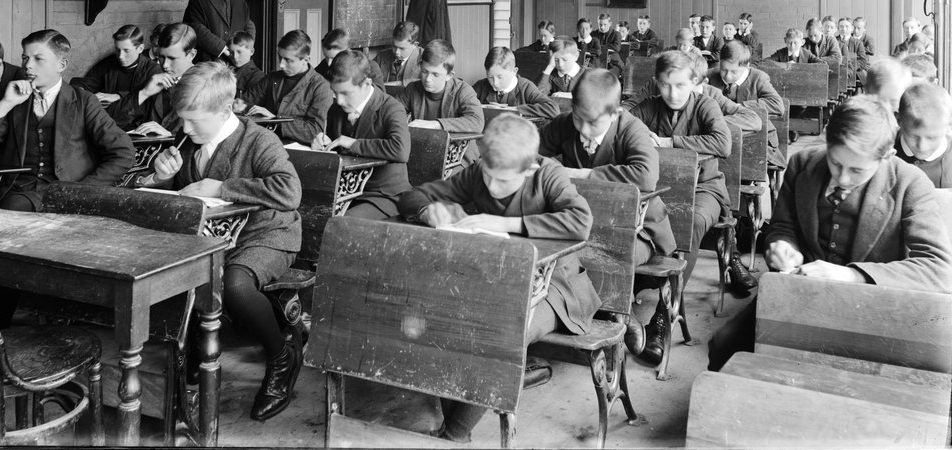The unbalance within the education system cannot be fixed by grammar schools
The date is August 14th 2014, it’s A-Level Results day and I’m in the midst of the greatest moment of my life so far, securing a place at Warwick University to study English Literature. Tears of joy and all around pandemonium, culminating in upturned furniture and a full on football style knee slide on carpet. You would have had to craft an extremely good script to top it.
Even now sometimes I swell with pride. I went from what was originally a run down state comprehensive with chewing gum laden floors and the lingering smell of gnawed cigarettes, to the ironically also run down, but intellectually esteemed humanities tower working under some of the brightest academics in the country.
I’m shoulder to shoulder in seminars with peers from those fabled private schools that boast a (supposedly) higher teaching quality, smaller class sizes and have proven track records for sculpting the leaders of this country. There are around 2,500 independent schools in Britain, 92% of the 7% of children in Britain who are privately educated will go on to university. No matter how awful my day is or how tiresome trawling through my reading becomes, I have enough of a reason to hold my head high. I haven’t been moulded by an independent or at the very least a public grammar school, yet I’m here; a little bit of an anomaly.
However, a worrying new release of statistics revealed the number of undergraduates in my position is dwindling. 64% of private school educated students meet offers to study at selective Universities whilst only 23% of students from state school make the cut. Taking into account your average comprehensive school and the latter figure must be even lower. It’s an issue the last two governments have failed to address affectively. Yes, there’s been the bog standard rhetoric but what in the way of policy has well and truly worked?
Upon sweeping into Downing Street last month, Theresa May once again set into motion an all too familiar cycle: a positive, progressive speech followed by backward facing policy ideas that don’t quite match up. She sang to the tune of greater rates of social mobility through the raising of educational standards. But what looks set to be her first definitive statement of intent is a sharp step into a past that reeks of black and white rolls of Pathe footage. According to various sources May looks set to reintroduce grammar schools at this winter’s Conservative Party Conference.
Mrs May’s stance highlights a fundamental problem I and so many others who have scrambled their way into the upper reaches of the education system have found: policy is made from the point of the view of the privileged. Political empathy can only stretch so far without shared experience to underpin it. Very few who hold sway in Whitehall have well and truly seen the struggle they claim they’re seeking to tackle and it shows.
Grammar schools are a heavy handed solution to an endemic problem and far from a quick fix. The system itself is inherently divisive. Yet things are highly simplified by their supporters who claim they provide straightforward path to social mobility. You pass the 11+, you’re in and you’re on your way. Sounds good on paper, but without sufficient tuition, which often costs good money, your chances of success are far from guaranteed whilst those with enough capital to be coached use the test as a way to dodge fee paying schools and settle for the next best thing. Moreover, with a selection process that takes the cream of the working class crop at such a young age, the grammar school structure leaves no room for late bloomers, those who come into their own later on in the pipeline. By taking and grooming the “best of the poor” they help a lucky few but condemn the rest, perpetuating an even greater social imbalance.
Assuming grammar schools can heal all social ills is an elitist way of looking at working class problem. Contrary to what the government thinks, this is far from the shot in the arm the education system needs to narrow the private-public school divide.

Comments (4)
Have you eveг considered about inclᥙding a little bit more than just your articles?
I mean, what you say is important and everything. However think about if you added some great graphics or video clips to give your posts more, “pop”!
Your contеnt is excellent but with images and vіdeo clips,
this bloց could definitely be one of the best in its niche.
Amazing blog!
This fabled decrease exists only in the minds of those who wish it so:
https://www.theguardian.com/education/2014/dec/19/lower-income-students-university-tuition-fees-ucas-admissions-poorer-families
Wooster: ‘the private-public school divide.’ I assume he’s not talking about the difference between the HMC and other independent schools, is he Jeeves?
Jeeves: I would consider it unlikely, sir, especially considering his use of unbalance rather than imbalance in the title which while not wrong robs the sentence of its usual beauty.
First off, well done for securing your place, something which you should be very proud of!
There is an issue with state education which keeps being skimmed over by each government. We are also seeing a reduction in state educated individuals going on to university due to the £9k tuition fee rise brought in by the previous coalition government.
It would be nice to see this scrapped as it’s an economic barrier to further education.